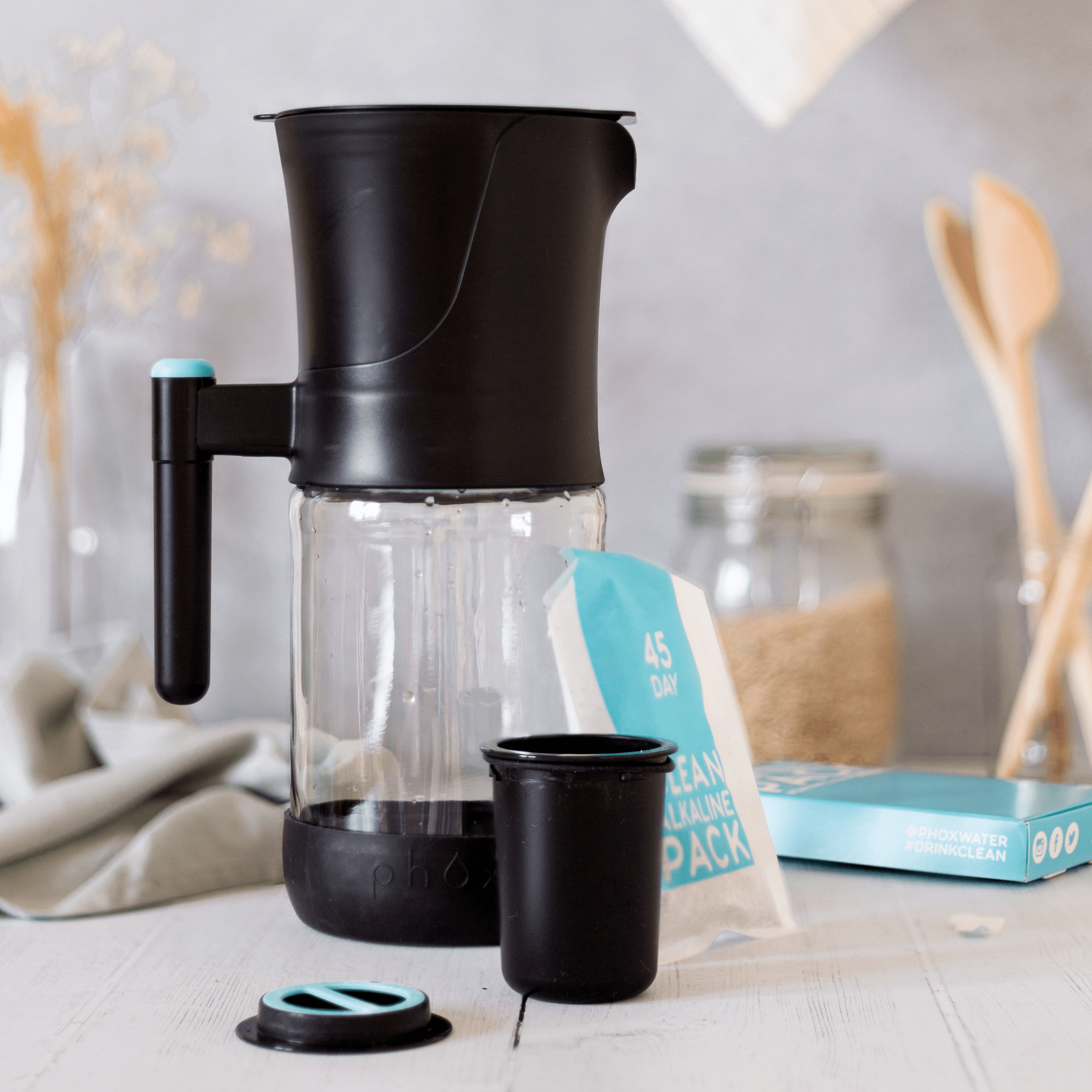Can You Drink Distilled Water Every Day? Pros & Cons
Can you drink distilled water every day? Yes, you can – but that doesn't mean it's the best choice. While distilled water is free from impurities, it also removes essential minerals your body relies on. Over time, this lack of minerals may affect hydration, energy, and overall health.
This guide explores the pros and cons of drinking distilled water daily. We'll explain when it makes sense and when it doesn't and what healthier options you can try. It's definitely worth factoring in if you want clean, sustainable hydration that still provides nutrients.
What Is Distilled Water?
Distilled water is made by boiling water into steam and condensing it back into liquid. The process leaves behind minerals, chemicals, and bacteria. The result is ultra-pure H₂O, free from chlorine, lead, and other common tap water contaminants.
Because of its purity, distilled water is often used in laboratories, medical settings, and appliances like irons or CPAP machines. When it comes to drinking water, distilled water is not just free of impurities. It also lacks important minerals like calcium and magnesium.
Unlike filtered or mineral water, distilled water strips away everything – including the good stuff. That's why solutions like Phox's refillable filter packs are designed to balance purity with essential mineral retention — though it's important to note that they are not a suitable replacement for distilled water in specialist appliances that require it.
Can You Drink Distilled Water Every Day?
The short answer is yes, it's safe for most people in the short term. But as a long-term hydration strategy, it's far from ideal.
The NHS doesn't consider distilled water unsafe. However, it lacks electrolytes, so it may not properly hydrate you over time. This is especially true during exercise or hot weather. Drinking it occasionally is fine, but relying on it daily without mineral support could impact your body's natural balance.
Is Distilled Water Safe to Drink Regularly?
Distilled water doesn't harm you directly, but its lack of nutrients may affect how well your body absorbs and uses fluids. This is especially important for active individuals or anyone with a limited or highly processed diet.
Your local water quality also matters. In the UK, tap water already has varying mineral content. To find out what's in yours, use Phox's Water Quality Database and tailor your water treatment accordingly.
Benefits of Drinking Distilled Water
There are a few good reasons why someone might choose distilled water:
- It's free from bacteria, heavy metals, and chlorine.
- It avoids limescale, which can benefit people using medical devices or living in hard water areas.
- It may offer peace of mind during short-term detoxes or when travelling to places with unreliable tap water.
Distilled water is excellent for those with weak immune systems or short-term health issues needing ultra-pure water. However, it's a short-term fix – not a long-term solution. Refillable filtered options offer peace of mind without sacrificing minerals.
For travel, detox, or appliance use, distilled water makes sense. But for everyday hydration, Phox's sustainable refill system offers a smarter alternative.
Risks of Drinking Distilled Water Every Day
While distilled water is contaminant-free, it's also nutrient-free. If you rely on it every day, it might disturb your electrolyte balance. This is more likely if your diet doesn't have enough magnesium, calcium, or potassium. These minerals are vital, not just optional. They aid muscle function, help nerve signalling, and ensure cells stay hydrated.
Distilled water has a flat taste that might put people off drinking enough. This can lead to dehydration without them knowing. Since it lacks buffering minerals, some studies say it might raise the body's acidity over time. This effect is more likely if you drink it in large quantities.
What Happens If You Only Drink Distilled Water?
You might not notice any issues right away. After weeks or months, you may feel mild symptoms. These might be fatigue, muscle cramps, or lower exercise performance. This is more common among physically active individuals or those with restrictive diets.
Phox filters address these problems by preserving key minerals such as magnesium and calcium. They also eliminate the plastic waste linked to single-use filter cartridges.
Learn more about our refillable filter packs.
When Is It Okay to Drink Distilled Water?
Distilled water does have its place. It's ideal for short-term use during:
- Travel to areas with unreliable or heavily chlorinated water
- Medical device use (e.g. CPAP machines, humidifiers)
- Short detox periods or health resets
- Temporary immune-compromised conditions
For people in areas with regulated UK water supplies, daily use of distilled water is not needed. Filtered water is usually a better choice.
Are you curious whether your region's tap water is considered hard, soft, or high in contaminants? Use our postcode-based Water Quality Checker to determine what's in your water and choose the right treatment solution.
Best Alternatives to Distilled Water
If you're looking for purity without losing vital minerals, filtered water offers a more balanced solution. Modern refillable filters work differently than distillation. They filter out harmful substances and retain electrolytes, supporting your daily health.
Filtered vs Distilled vs Mineral Water
Distilled
- Pure but mineral-deficient
Mineral
- Nutrient-rich but not always sustainable
Filtered
- Clean, mineral-supportive, and better for the environment
Phox refill packs are designed to match your water profile:
- Softener Pack: Reduces limescale in very hard water
- Clean Pack: Targets chlorine, lead, and copper in moderately hard water
- Alkaline Pack: Adds magnesium and increases pH for softer water areas
Not sure which pack to choose? Use our water quiz, or our support team can help you choose the right pack for your area.


